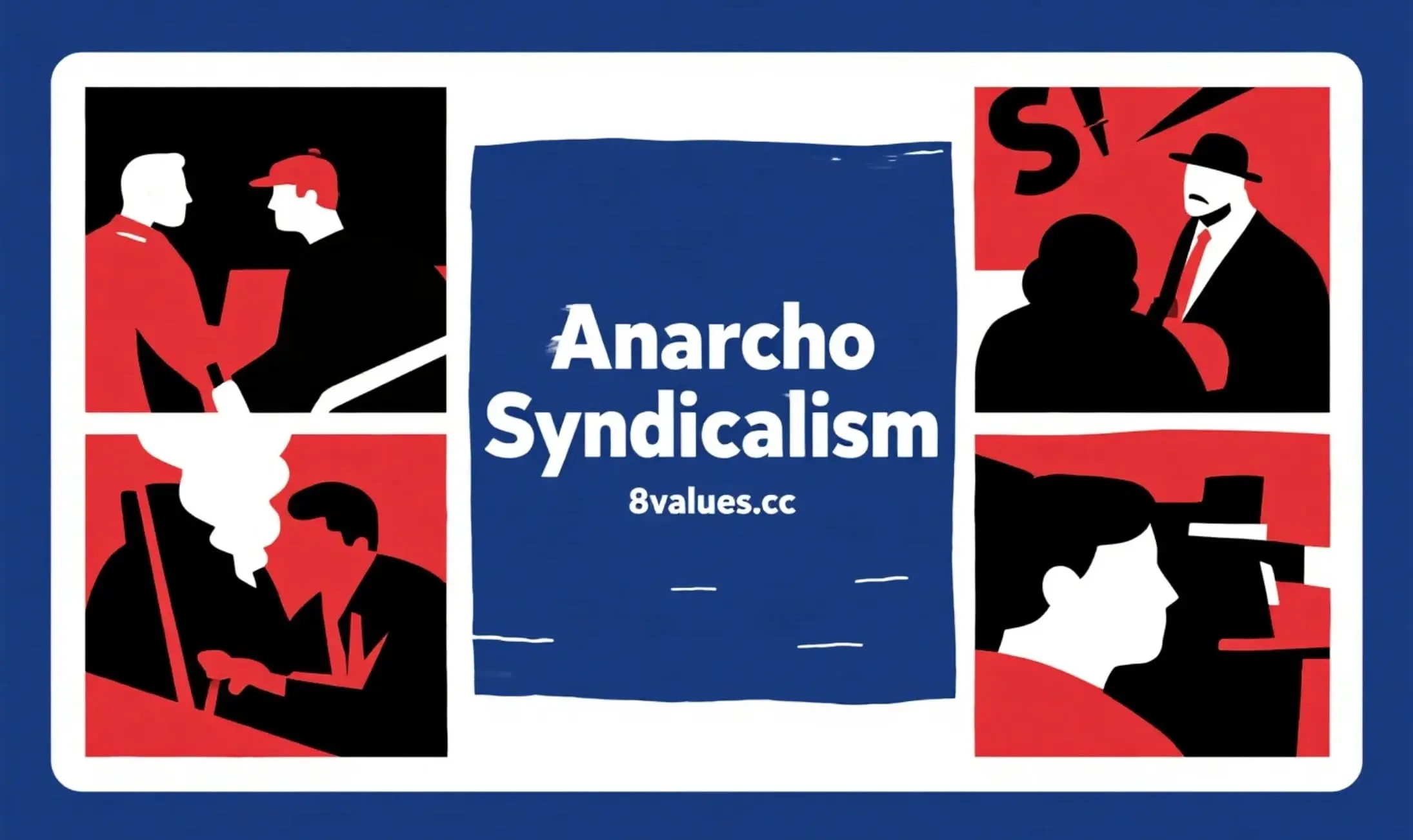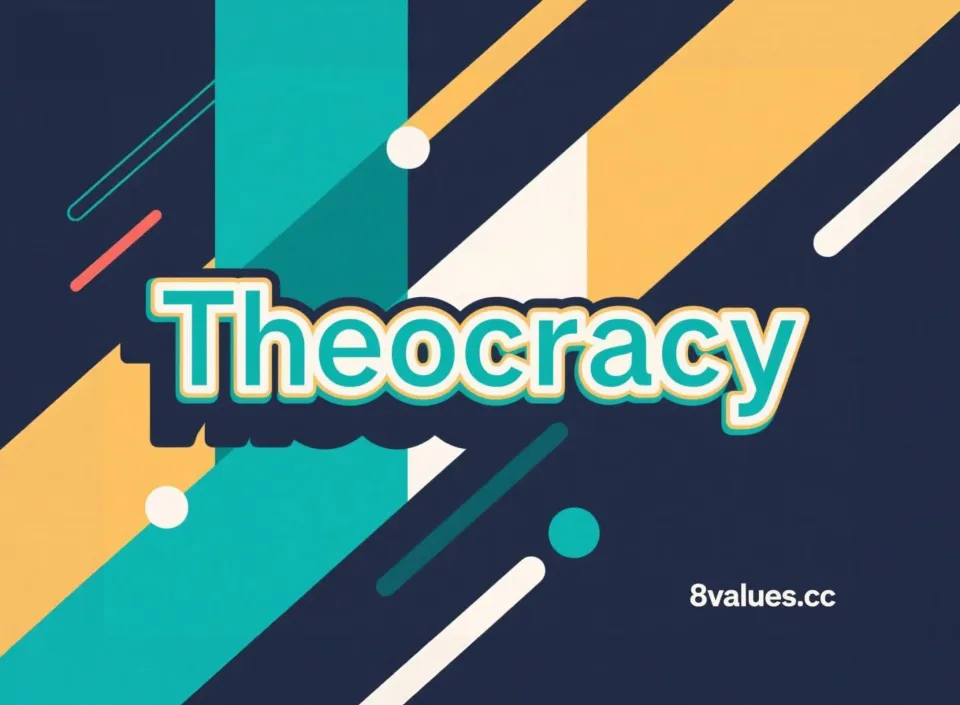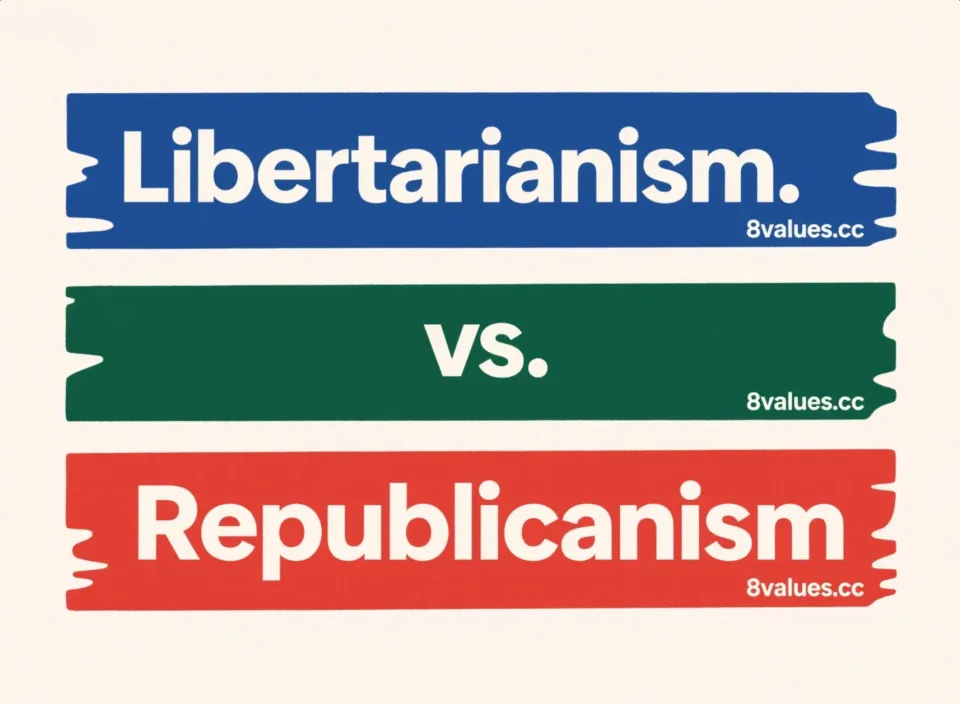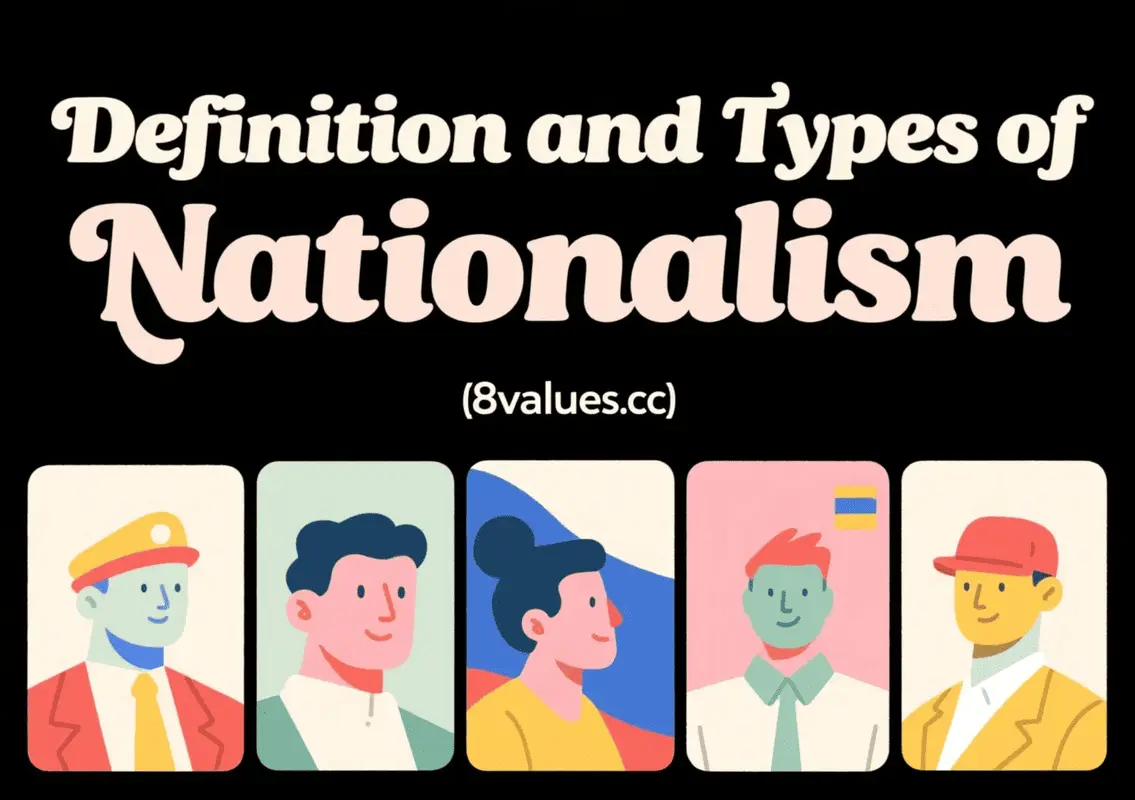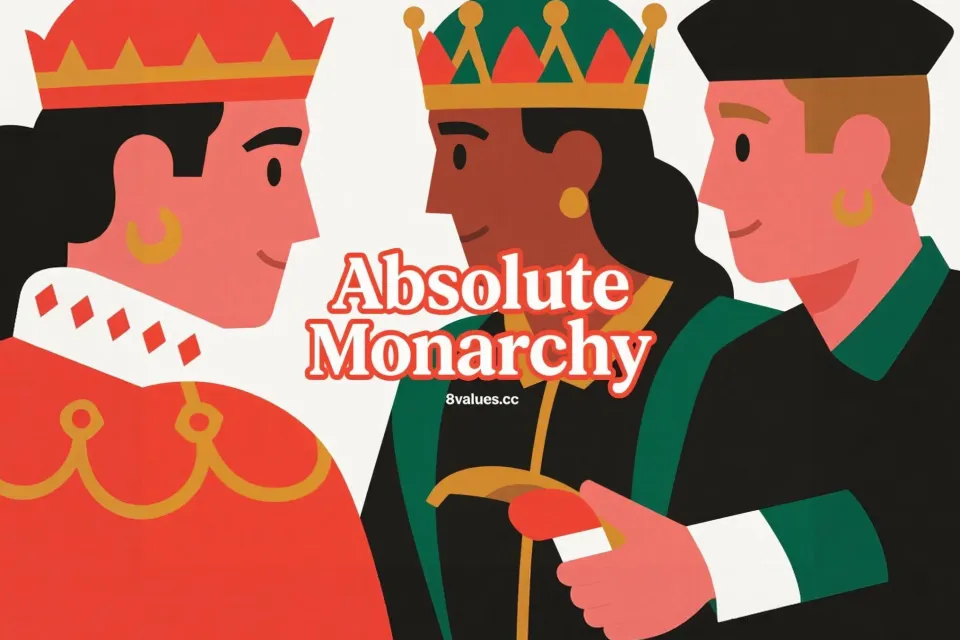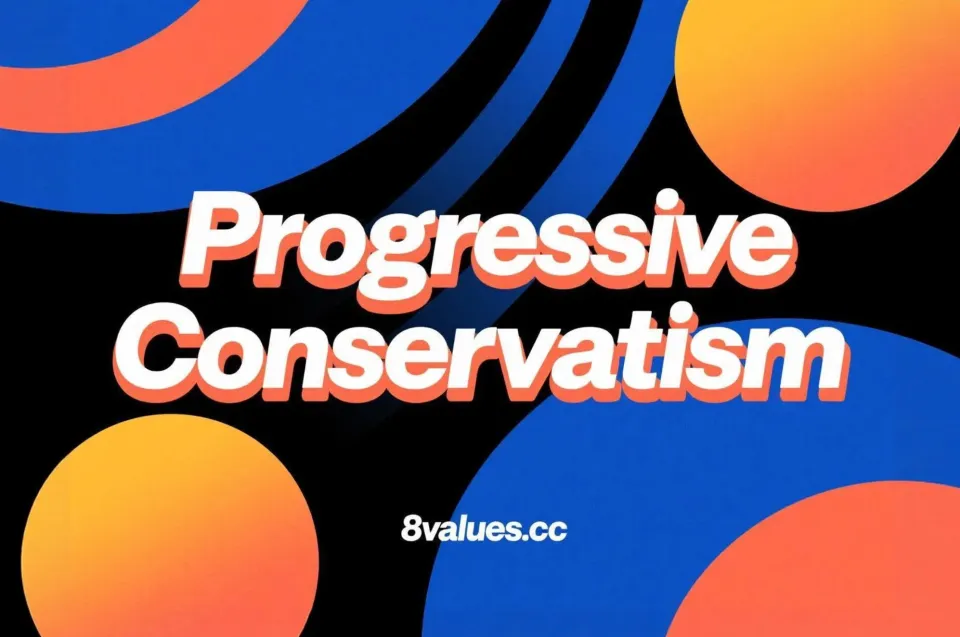Anarcho-Syndicalism | 8 ค่าตีความของอุดมการณ์อุดมการณ์ในการทดสอบทางการเมือง
Anager Syndicalism เป็นโรงเรียนสังคมนิยมเสรีนิยมที่เหลืออยู่ห่างไกลซึ่งส่งเสริมการเปลี่ยนแปลงทางสังคมผ่านสหภาพการค้าและความเป็นอิสระของคนงาน บทความนี้รวมผลการทดสอบ 8 ค่าเพื่อตีความแนวคิดหลักการพัฒนาทางประวัติศาสตร์การปฏิบัติเชิงกลยุทธ์และความสัมพันธ์กับอุดมการณ์อื่น ๆ ช่วยให้คุณเข้าใจอุดมการณ์ทางการเมืองที่เป็นเอกลักษณ์นี้
Anarcho-Syndicalism เป็นปรัชญาทางการเมืองที่ไม่เหมือนใครและการเคลื่อนไหวทางสังคมที่ใช้หลักการอนาธิปไตยกับการเคลื่อนไหวของคนงานและองค์กรสหภาพแรงงานโดยมีเป้าหมายในการบรรลุการเปลี่ยนแปลงทางสังคมอย่างสมบูรณ์ผ่านการกระทำของแรงงานโดยรวมการยกเลิกระบบของรัฐและทุนนิยม ในการทดสอบอุดมการณ์ทางการเมือง 8 ค่าหากผลลัพธ์ของคุณมีแนวโน้มที่จะมีต่อประเภทนี้คุณอาจให้ความสำคัญกับ ความเป็นอิสระของคนงานการกระทำโดยตรงและการจัดการโดยรวม และมีความระมัดระวังอย่างมากเกี่ยวกับอำนาจและการควบคุมของรัฐ
แนวคิดหลักและคำจำกัดความ: การวิเคราะห์แนวคิดของ syndicalism ใน anager
Anarcho-Syndicalism เน้นการส่งเสริมการปฏิวัติทางสังคมผ่านสหภาพการค้าและองค์กรคนงานและปรัชญาหลักของมันรวมถึงแง่มุมดังต่อไปนี้:
- นิรุกติศาสตร์และสาระสำคัญ
- "Syndicalisme" มาจากภาษาฝรั่งเศสหมายถึง "สหภาพแรงงาน" และแสดงถึงรูปแบบองค์กรของกลุ่มคนงาน
- มันเป็นประเพณีทางการเมืองที่ปฏิวัติวงการที่ประกาศว่า "เสรีภาพที่ไม่มีสังคมนิยมเป็นสิทธิพิเศษและความอยุติธรรมและสังคมนิยมที่ไม่มีอิสรภาพคือการเป็นทาสและความโหดร้าย"
- สหภาพการค้า (กลุ่มทีม) ถือเป็นกองกำลังสำคัญในการเปลี่ยนแปลงทางสังคมและเป็นตัวบ่งชี้ที่สำคัญของแนวโน้มเสรีนิยมที่เหลืออยู่อย่างมากในการทดสอบ 8 ค่า
- เป้าหมายสูงสุด
- สร้างสังคม ที่ไม่มีพรมแดนโดยไม่มีชั้นเรียนโดยไม่มีค่าจ้าง
- ยกเลิกระบบค่าจ้างและการครอบครองเครื่องมือการผลิตส่วนตัวเพื่อกำจัดความแตกต่างของชั้นเรียน
- คนงานจะจัดการการผลิตและสังคมโดยอัตโนมัติเพื่อจัดตั้งระบบเศรษฐกิจประชาธิปไตยโดยตรง
- หลักการพื้นฐาน
- ความเป็นน้ำหนึ่งใจเดียวกันของคนงาน : ความช่วยเหลือซึ่งกันและกันซึ่งขับเคลื่อนโดยจิตสำนึกในชั้นเรียนเน้นความสนใจร่วมกันของคนงานทุกคน
- การกระทำโดยตรง : ต่อสู้เพื่อสิทธิและผลประโยชน์ผ่านการนัดหยุดงานอาชีพ ฯลฯ แทนที่จะพึ่งพาการเป็นตัวแทนทางการเมือง
- การจัดระเบียบตนเองของผู้ปฏิบัติงาน : การตัดสินใจทั้งหมดได้รับการตัดสินโดยตรงโดยคนงานระดับรากหญ้าและหน่วยงานบริหารมีหน้าที่รับผิดชอบในการดำเนินการมติโดยเน้นการกระจายอำนาจและประชาธิปไตยโดยตรง
ตรวจสอบ รายการทั้งหมดของ 8 ค่าการทดสอบอุดมการณ์ทางการเมือง สำหรับการเปรียบเทียบเพิ่มเติมเกี่ยวกับผลลัพธ์ที่เหลืออยู่อย่างมากหรือเสรีนิยม
ประวัติศาสตร์และการพัฒนาของ Anager Syndrome: การเคลื่อนไหวของคนงานจากฝรั่งเศสสู่ระดับโลก
- ต้นกำเนิดและอิทธิพลก่อน
- ในฝรั่งเศสในตอนท้ายของศตวรรษที่ 19 ปิแอร์-โจเซฟ Proudhon เสนอทฤษฎีพื้นฐาน
- กลุ่มเสรีนิยมและกลุ่มส่วนกลางของรัฐถูกแบ่งออกภายในสหพันธ์แรงงานระหว่างประเทศ (นานาชาติครั้งแรก) และ Bakuning มีอิทธิพลอย่างกว้างขวาง
- การสื่อสารและความเจริญรุ่งเรือง
- ในช่วงต้นศตวรรษที่ 20 มันแพร่กระจายอย่างกว้างขวางในยุโรปและละตินอเมริกา
- สหพันธ์สหภาพแรงงานฝรั่งเศส (CGT) ก่อตั้งขึ้นในปี 2438 เพื่อส่งเสริมความเป็นอิสระของคนงานผ่านการนัดหยุดงานทั่วไป
- องค์กรกลางคนงานสวีเดนและสหภาพอุตสาหกรรมสังคมนิยมอเมริกันล้วนได้รับผลกระทบจากมัน
- เหตุการณ์สำคัญและองค์กร
- สมาคมแรงงานระหว่างประเทศ (IWA ก่อตั้งขึ้นในปี 2465) สหภาพแรงงานผู้นิยมอนาธิปไตยระดับโลก
- สหภาพแรงงานแห่งชาติ (CNT) จัดกองกำลังติดอาวุธของคนงานในช่วงสงครามกลางเมืองสเปนเพื่อให้บรรลุการรวมกลุ่มอุตสาหกรรม
- องค์กรของคนงานในระหว่างการเคลื่อนไหวครั้งที่สี่ของเดือนพฤษภาคมในอาร์เจนตินาบราซิลและจีนต่างก็สะท้อนให้เห็นถึงอิทธิพลของการเป็น syndicalism anager
ความสัมพันธ์ระหว่าง anager syndicalism และโรงเรียนความคิดอื่น ๆ : การวางตำแหน่งและความคมชัด
- อนาธิปไตย : anager syndicalism เป็นสาขาของอนาธิปไตยที่เน้นการตระหนักถึงอิสรภาพและความเป็นอิสระผ่าน syndicalism
- สังคมนิยม/คอมมิวนิสต์ : มันเป็นของสังคมนิยมที่เหลืออยู่อย่างสุดขีดโดยเน้นความไม่พอใจระบบต่อต้านประเทศและต่อต้านรัฐ
- มาร์กซ์ : ต่อต้านการปกครองแบบเผด็จการกรรมกรและการรวมศูนย์ของรัฐและให้ความสำคัญกับประชาธิปไตยระดับรากหญ้าและเสรีภาพส่วนบุคคล
- ประชาธิปไตยทางสังคม/การเมืองของรัฐสภา : มักจะปฏิเสธพรรคการเมืองที่จะเป็นผู้นำการเคลื่อนไหวของคนงานสนับสนุนการกระทำโดยตรงมากกว่าวิธีการเลือกตั้ง
การวิเคราะห์พิกัดสเปกตรัมทางการเมือง 8 ค่า เปรียบเทียบการแจกแจงการประสานงานของอิสรภาพและสิทธิอำนาจปีกซ้ายและขวา
กลยุทธ์และการปฏิบัติของ Anage Syndrometicism: การกระทำของสหภาพแรงงานและวิธีการปฏิวัติ
- การเปลี่ยนแปลงทางสังคมที่ปฏิวัติวงการ : แทนที่ทุนนิยมและรัฐผ่านการจัดระเบียบตนเองของคนงานเพื่อให้บรรลุอิสระในระบอบประชาธิปไตย
- บทบาทของสหภาพแรงงาน : ในฐานะศูนย์กลางของความเป็นปึกแผ่นและการกระทำของคนงานจัดระเบียบการตัดสินใจร่วมกันและการดำเนินการโดยตรง
- การโจมตีทั่วไป : รูปแบบการต่อสู้ทางเศรษฐกิจที่สูงที่สุดผ่านการนัดหยุดงานเพื่อควบคุมความมั่งคั่งทางสังคม
- การศึกษาและการประชาสัมพันธ์ : กระจายความคิดผ่านหนังสือพิมพ์แผ่นพับและการประชุมเพื่อปรับปรุงการรับรู้ในชั้นเรียนและความสามารถในการดำเนินการ
- ปฏิเสธคนกลาง : มันไม่ได้พึ่งพาผู้ไกล่เกลี่ยหรือตัวแทนทางการเมือง แต่ทั้งหมดเกี่ยวกับการกระทำของคนงานเอง
ความท้าทายและการวิพากษ์
- ธรรมชาติของยูโทเปีย : ความเป็นไปได้ของการตายของรัฐนั้นถูกสอบสวนโดยอาศัยความเป็นอิสระของมนุษย์
- ที่เกี่ยวข้องกับความรุนแรง : การกระทำบางอย่างในประวัติศาสตร์เกี่ยวข้องกับเหตุการณ์รุนแรงและถูกตีตราได้ง่าย
- ความขัดแย้งภายใน : อาจมีความขัดแย้งระหว่างการกระทำโดยรวมและความเป็นอิสระของแต่ละบุคคลและเป็นการยากที่จะดำเนินการ
สรุป
Anage Syndicalism ได้ทิ้งร่องรอยไว้อย่างลึกซึ้งต่อขบวนการคนงานทั่วโลกตั้งแต่ขบวนการแรงงานฝรั่งเศสไปจนถึงสงครามกลางเมืองสเปนไปจนถึงละตินอเมริกาและการเคลื่อนไหวครั้งที่สี่พฤษภาคมในประเทศจีนโดยมีปรัชญาเน้นการปกครองตนเองของคนงานการกระทำโดยตรงและความเท่าเทียมกันทางสังคม 8 ค่าใช้จ่ายผู้ใช้ที่มีแนวโน้มที่จะได้รับผลการทดสอบประเภทนี้มักจะอยู่ในสเปกตรัมทางการเมืองของสังคมนิยม Will Free Will Extreme ที่มีความสำคัญต่อประชาธิปไตยระดับรากหญ้าและการจัดการร่วมกันและในเวลาเดียวกันพวกเขาก็สงสัยอย่างมากเกี่ยวกับอำนาจของรัฐ
อ่าน บทความการตีความการทดสอบทางอุดมการณ์ 8 ค่า เพิ่มเติมเพื่อเรียนรู้เกี่ยวกับท่าทางทางการเมืองและการปฏิบัติทางสังคมของโรงเรียนที่อยู่ห่างไกลหรือโรงเรียนเสรีนิยมอื่น ๆ
